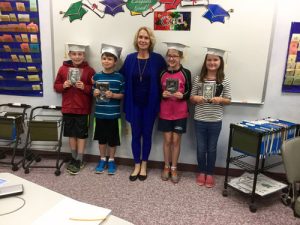Classes

Classes Offered at The Total Learning Center
An Alternative Method for Alternative Learners
At the Total Learning Center, we believe that every person has a unique learning style, and that many of us do not learn in traditional ways. Therefore, the key to unlocking each student’s potential is to discover his or her own special learning style. Whether a student has dyslexia, an attention deficit disorder (ADD/ADHD), or another learning disability, there is always a better way to learn! By using a multisensory, hands on approach, students in the Neptune area involve all their senses in the learning process at our dyslexia learning center. This unique approach provides the learner success in mastering the skills needed for a lifetime.
The Mission of The Total Learning Center:
The mission of this center is for each student to develop proficiency in reading accurately, fluently and with comprehension. In addition, for the student to be able to spell accurately 85% of the time and utilize a spelling checker when needed to edit written work. Written language skills are incorporated in the Wilson Curriculum as they advance in the program. By the time the students have completed all 12 steps in this curriculum they are often de-classified and no longer require Resource Room or other support services. They are reading, spelling and performing written language skills with confident and proficiency.
Wilson Instruction
The staff at The Total Learning Center provide instruction in both Level 1 (Steps 1-6 ) in the Wilson Curriculum and the advanced level (steps 7-12) Level 2 of this curriculum. The staff also provides replacement spelling words to the support teachers at the student’s school and to the parents, so they have the opportunity to apply concepts learned in the Wilson Curriculum. Weekly updates are sent to the support teachers, so they can work together to enhance the student’s learning. Hands-on multi-sensory instruction to enhance comprehension is provided using a multitude of strategies that incorporate the strategies of the Project Read Comprehension Strand and visualization techniques to enhance retention and retrieval of factual information.
Classes are offered in three settings: private, semi-private and small group Instruction.
A Lifelong Approach To Learning
Since we believe that learning is lifelong, we also offer a full range of classes for adults who want to improve their reading, writing and spelling skills. Each adult learner is unique and an educational program is developed that meets their academic needs and assists them in reaching their future goals. As the adult learner begins to master their language skills they develop heightened self-confidence which make a significant difference in their interpersonal relationships and career opportunities.
What is meant by an Orton Gillingham-based program?
The term Orton Gillingham implies a multi-sensory hands-on program with direct instruction in sounds, decoding (reading), encoding (spelling) and written language skills. Visual (reading), auditory (spelling), and kinesthetic (writing) is incorporated into each lesson and as a result a multisensory program is provided that rotates all the senses during instruction. While there are many reading programs that utilize the Orton Gillingham strategies what differs is the sequence of instruction and the pace of instruction. Generally In the course of an hour the child should receive instruction in sound/symbol association, word attack, oral reading, silent reading comprehension and end with spelling and written language skills. This is a program that is designed for the student who is having difficulty with sounding out words accurately, oral reading accuracy and fluency, spelling and writing skills. It is recommended that the student attends dyslexia classes a minimum of two days a week at our Neptune area facility. However, the level of expertise and the consistency of instruction varies depending on how the program is carried out in actuality. Fortunately, at The Total Learning Center, we are not affected by other activities that can affect the consistency of instruction in a public school setting, and we have the ability to group children according to their individual academic strengths and weaknesses and not by the schedule demands of a school setting.
